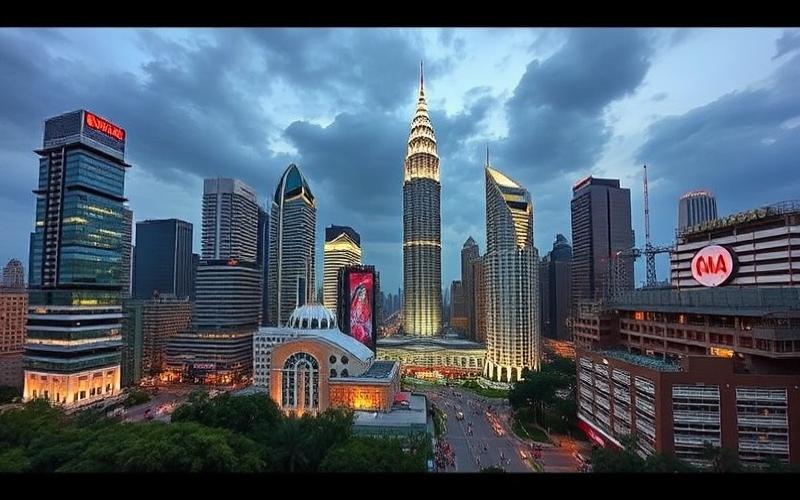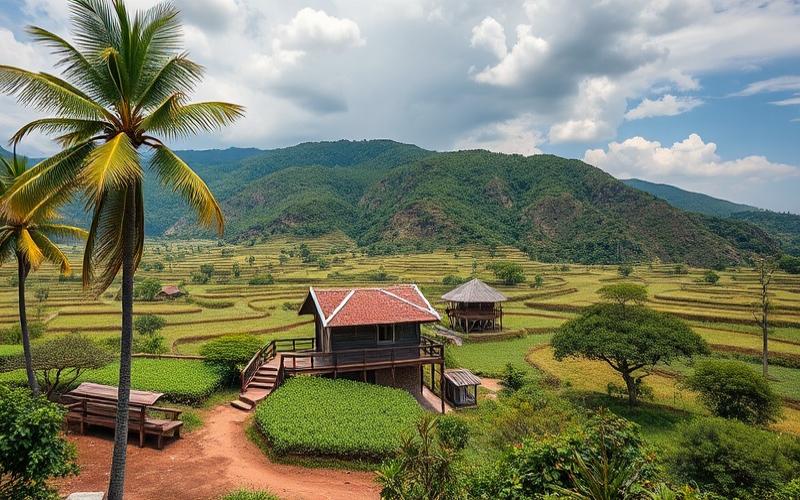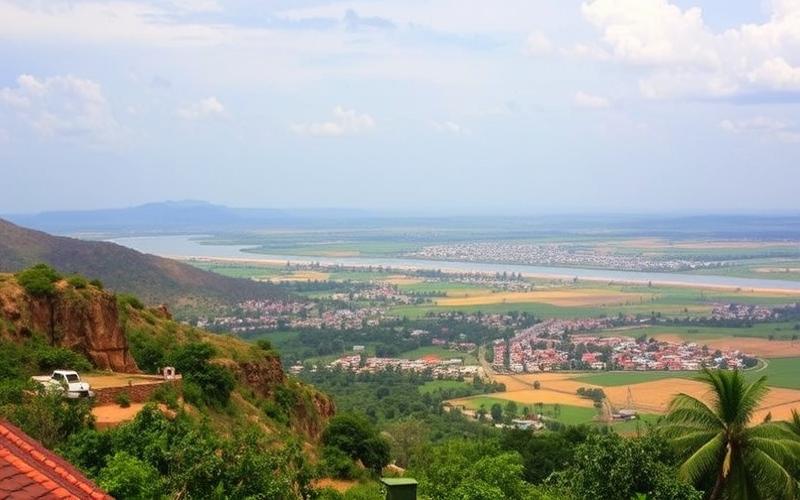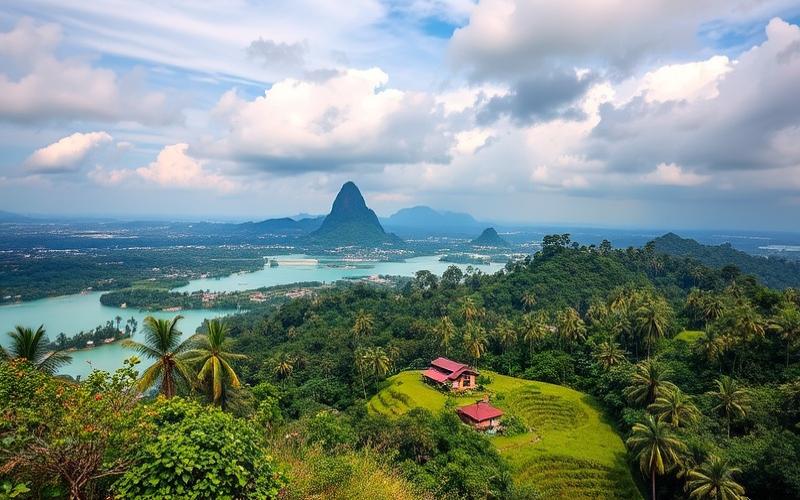
 Published on and written by Cyril Jarnias
Published on and written by Cyril Jarnias
Tourism has become a major economic driver for Malaysia, attracting millions of visitors each year. This growing influx of tourists is significantly impacting the country’s real estate market, transforming certain regions and creating new investment opportunities. Let’s take a closer look at how the tourism boom is shaping Malaysia’s real estate landscape.
Dream Destinations for Investors
Several tourist areas in Malaysia are particularly sought after and experiencing significant real estate development:
- Kuala Lumpur: The capital attracts numerous visitors with its iconic skyscrapers like the Petronas Towers. Downtown areas and neighborhoods like Bukit Bintang are seeing strong demand for luxury apartments and condominiums.
- Penang: This historic island captivates with its architectural heritage and beaches. Georgetown, a UNESCO World Heritage site, is experiencing renewed interest in its renovated colonial houses.
- Langkawi: This paradise archipelago is highly sought after for its luxury hotel resorts. Beachfront luxury villas are particularly in demand here.
- Malacca: This historic city is attracting more and more tourists, boosting demand for boutique hotels and renovated traditional houses.
These flagship destinations are seeing new real estate projects flourish to meet growing tourist demand, sometimes radically transforming the urban landscape.
Soaring Prices in Prime Areas
The influx of tourists and foreign investors is having a notable impact on real estate prices in the most attractive regions:
In Kuala Lumpur, prices for luxury apartments in the city center have increased by an average of 30% over the past 5 years. Some neighborhoods like KLCC are even seeing increases of up to 50%.
In Penang, the value of heritage properties in Georgetown has doubled in a decade. A renovated colonial house can now sell for over a million dollars.
In Langkawi, luxury beachfront villas are reaching record highs, with prices potentially exceeding 5 million dollars for the most prestigious ones.
This price surge is making property ownership more difficult for local residents in some areas highly favored by tourists. However, it also creates opportunities for property owners and investors.
The Vacation Rental Boom
The tourism boom has also stimulated Malaysia’s vacation rental market:
- Many property owners are converting their assets into short-term rentals through platforms like Airbnb, particularly in Kuala Lumpur and Penang.
- Rental yields can be very attractive, reaching 6 to 8% in sought-after tourist areas.
- This trend has led to the emergence of property management companies specializing in vacation rentals.
- Some cities like Penang have had to implement regulations to manage this phenomenon and preserve rental market balance.
Tourism rental investment has become a popular strategy, but requires good knowledge of the local market and current regulations.
Good to Know:
The Malaysian government has implemented the “Malaysia My Second Home” (MM2H) program that facilitates property purchases for foreigners wishing to reside in the country, further stimulating foreign investment in real estate.
Tourism undeniably plays a major role in transforming Malaysia’s real estate market. While it creates interesting opportunities for investors, it also raises challenges in terms of housing accessibility for local populations. Malaysian authorities will need to find a balance between tourism development and preserving urban social fabric in the coming years.
Disclaimer: The information provided on this website is for informational purposes only and does not constitute financial, legal, or professional advice. We encourage you to consult qualified experts before making any investment, real estate, or expatriation decisions. Although we strive to maintain up-to-date and accurate information, we do not guarantee the completeness, accuracy, or timeliness of the proposed content. As investment and expatriation involve risks, we disclaim any liability for potential losses or damages arising from the use of this site. Your use of this site confirms your acceptance of these terms and your understanding of the associated risks.
















